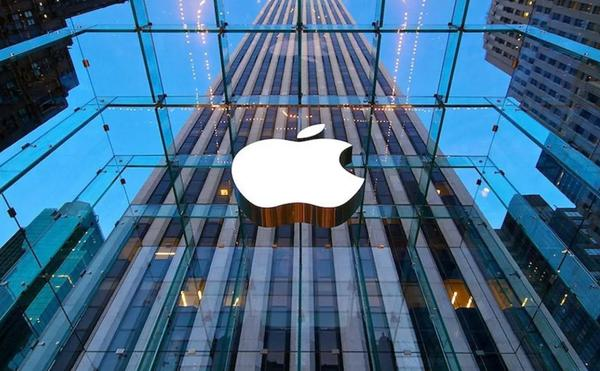
In 2016, the European Union's competition Commission ruled that Ireland had charged Apple 13 billion euros in unpaid taxes, the largest fine in history. In 2020, the General Court of the European Union ruled that the European Commission's decision was invalid and that Apple did not have to pay the tax back to the Irish government. On November 9 this year, Giovanni Pietruzella, general counsel of the European Court of Justice, the highest judicial body of the European Union, issued an opinion on the case, suggesting that the previous judgment of "Apple does not need to pay back taxes" should be revoked, and the case should be sent back to the next level of the EU General Court for retrial.
As part of the proceedings of the European Court of Justice, the opinion does not have the force of law, but because the European Court of Justice's decisions in the past are mostly consistent with the opinion, its content has attracted attention. The opinion said that in 2020, the General Court of the European Union ruled that the decision of the European Commission was invalid, and the relevant judgment that Apple did not need to pay 13 billion euros in back taxes to the Irish government had "a series of legal errors" in determining whether the European Commission's standard of proof and argument method were wrong, and therefore recommended that the European Court of Justice revoke the original judgment and send the case back to the General Court of the European Union for retrial.

In response to Pitrusella's remarks, Apple said, "The General Court's ruling is very clear that Apple did not gain a selective advantage and did not receive state aid, and we believe that this ruling should be upheld."
Apple has been battling the European Union for years over a massive tax evasion case. In 2016, the European Commission, as a regulatory body, found that Apple used the tax agreement reached with the Irish government to evade taxes, requiring Apple to pay 13 billion euros in back taxes, which Apple and the Irish government expressed dissatisfaction, and took the case to the EU General Court. In 2020, after the General Court of the European Union ruled in favor of Apple and the Irish government, the European Commission believed that the General Court of the European Union had misunderstood its legal arguments, and there were a number of "errors" in the judgment, and decided to appeal the case to the European Court of Justice. In May, the Luxembourg-based European Court of Justice held a hearing to consider the case. According to the schedule, after the general counsel's opinion on November 9, the European Court of Justice will publish its judgment in the next few months.
It is well known that Apple is based in Ireland in order to enjoy the local corporate tax rate of 12.5%, compared with the 35% tax rate in the United States. Apple has two subsidiaries in Ireland - Apple Sales International and Apple Operations Europe - which hold most of Apple's intellectual property. The two companies license intellectual property to subsidiaries of Apple worldwide and then earn revenue from those companies through licensing agreements.
Apple has set up a paper "head office" that is located in no country, has no employees, no factories, no physical activities, and pays no taxes to Ireland or anywhere else. Thanks to its "agreement" with the Irish government, Apple distributes most of its profits to the "parent company."
In June 2014, the European Commission announced the launch of an in-depth investigation into Apple's corporate tax transfer pricing arrangements to examine whether the Irish tax authorities' decision on Apple's corporate income tax payments complied with state aid rules.
According to evidence obtained by the EU investigation, Apple Sales International made a profit of €16bn in 2011, but only about €50m was recorded as taxable under the agreement, which means what is due under tax law, leaving €15.95bn untaxed, which means prices excluding VAT. Apple Sales International paid less than 10 million euros in taxes in 2011, equivalent to 0.05 percent of its profits that year, which is Apple's effective tax rate for the year. Over the next few years, Apple Sales International's profits continued to grow, but its taxable profits did not, thanks to the agreement, which ultimately reduced Apple's effective tax rate to 0.005% in 2014.
In this case, the Irish government issued a tax ruling against the two companies of Apple Group.

In its case against the Irish government and Apple, the European Commission accused the Irish government of giving Apple an unfair competitive advantage through tax incentives. In its 2016 decision, the European Commission said Apple benefited from two Irish tax rulings over a period of more than 20 years that artificially lowered its tax burden to as low as 0.005% in 2014.
The two tax rulings, made in 1991 and 2007 respectively, relate to the Apple Group (Apple Inc.). And Apple Inc. Controlled by all companies) and its two companies in Ireland, Apple Sales International(ASI) and Apple Operations Europe(AOE).
The company channels most of its European sales through its unstaffed "headquarters" at ASI and AOE in Cork. The Commission believes that ASI and AOE are set up for tax purposes and that they are not tax residents of Ireland. Under Irish tax rules, even if a business has a registered address in Ireland, it will not be considered tax resident in Ireland as long as the parent company or company is not based in Ireland but in another country.
In addition, Apple Inc. Cost-sharing agreements and marketing service agreements were signed with ASI and AOE. Under the cost-sharing agreement, the parties agreed to share the costs and risks associated with product development with the Apple Group. Apple Inc. With legal ownership of the intellectual property, ASI owns the economic rights to Apple's intellectual property outside the United States.
In accordance with the Commission's Circular on the concept of State aid referred to in Article 107 (1) of the Treaty on the Functioning of the European Union, the role of a tax determination is to determine in advance the application of the general tax regime in a particular case on the basis of the facts and circumstances.
Analysts point out that the EU has an elaborate state aid regime to ensure the survival of the single market. In terms of identifying various forms of aid, including tax incentives, that go beyond the necessary limits and distort competition in the EU internal market, the EU state aid rules are very detailed, issuing a large number of supporting guidelines, including specific quantitative indicators for different situations.

As 2026 approaches, the space sector is once again entering the public spotlight, becoming part of everyday discussion.
As 2026 approaches, the space sector is once again entering…
Microsoft CEO Satya Nadella recently launched a personal bl…
In the early hours of January 3, 2026, flames in the Caribb…
As 2026 begins, the euro area economy remains mired in a "w…
According to Xinhua News Agency, the Ministry of Agricultur…
Recently, the United States launched a military raid on Ven…